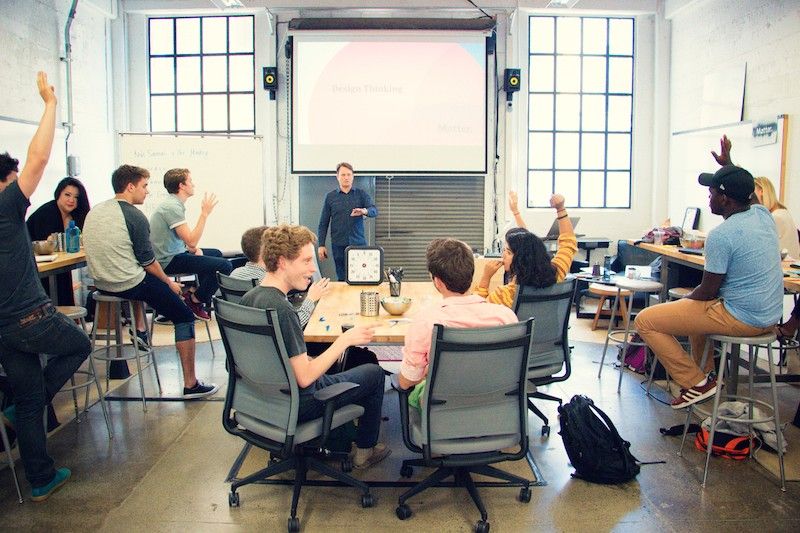Looking Back At Matter


When we began our journey with Matter, either 19 weeks or a lifetime ago depending on how you measure time, we knew nothing — especially not how little we knew. That only became apparent over time, as each passing day brought crucial lessons on how to build a product, work as a team, compose a business plan, or any other of the thousand-and-one tasks entrepreneurs must master. Naturally, these thousand-and-one tasks raised a million-and-one questions, but none bigger than this:
Were we serious?
There are many other ways to phrase it, from the cliched (did we have what it takes, whatever ‘it’ is?) to the existential (why are we doing this, again?), but at the core of this question was the uncertainty that underlies any entrepreneur’s story. We quickly became familiar with the murky zone between extreme doubt and extreme confidence in which Founders spend most of their time. Having our fates at once seemingly within our hands and subject to forces we couldn’t see took — well, takes — some getting used to. Like anything else we’d ever done (so, basically school), we expected that after a while, we’d settle into a rhythm within the entrepreneurial lifestyle, and that the proper path would kindly reveal itself.

We’ll, uh, let you know when that happens.
It wasn’t that we wanted to stop learning these difficult lessons — far from it. But we needed to find a way to be open to all the new information we were receiving without being overwhelmed by it. To stop thinking of what we were doing as a learning experience we could master, and instead start seeing it as what it was: real life, with all its unknowable consequences and implications.
The shift occurred one day during a discussion about our purpose. We had always known that we wanted Verbatm to be a home for important content. The convenient term we would hide behind instead of explaining what we actually meant was “substance.” The stories on Verbatm, whatever they would end up looking like, would have Substance. End of discussion.
But finally, we had to ask ourselves: what did we actually mean?
We found that, like anything worth defining, substance was a word that escaped easy definition. On the one hand, it meant the weighty ideals traditionally associated with the titans of the media industry — authoritative content produced by outlets held to the highest journalistic standards. Verbatm certainly aspired to maintain this legacy. But we also recognized that times (and technology) had changed, and our definitions had to change with them. While we in no way wanted to discount what substance has meant historically, we also had to assess what it meant to contemporary media consumers.

Ultimately, the substance we wanted to promote, the kind that our customers wanted to see, was anchored in the human experience. It served as a personal framework through which an abstract and seemingly impersonal issue can be understood.
In other words, just as a substantive story informs, it must also explore a question that resonates with its readers. Just as it captures something that’s true about the way the world works, it must also capture something that’s true about a single lived experience.
Just as it broadens the mind, it must also touch the heart.
When we framed our goal like this, something clicked. Building a platform where these kinds of stories were told proved convincing not only to our users, but to ourselves. Here was a “serious” task we could fully invest in. It didn’t matter that our certainty of accomplishing this task was every bit as hazy as the rest of what startup life entailed. Even failing was a noble goal, so long as we tried.
We finally understood what it meant to take the leap without knowing whether we had a parachute. In other words, what it meant to be an entrepreneur.

Verbatm’s latest iteration, as a mobile microblogging system, only emboldens the spirit of that conversation. By allowing Millennials to create and share powerful multi-form stories crafted from their own media, we will create a world in which everyone will be able to more freely express and follow her passions. We will judge our adherence to substance, not only by what a reader learns, but by how she feels about what she learns. How, hours after the fact, when our app is closed and modern life’s endless tide of information begins to ebb, she remembers what she saw and can’t let it go. It’s the emotional resonance lent by first person narratives that lies at the heart of this principle and makes it real.
People will come to Verbatm, as they have come to media since the dawn of humanity, to be informed. They will stay, and build a community that lasts, because they care.

This sentiment rings as true today as it did back when those titans of the industry were just toddlers. However the mediums (heh) have changed, the goal of media — our goal at Verbatm — remains the same: to forge a connection between consumer and creator via content that informs and inspires.
It is a connection borne of understanding, authenticity, and empathy. A connection that lasts.
And what could be more substantive, or more serious, than that?

